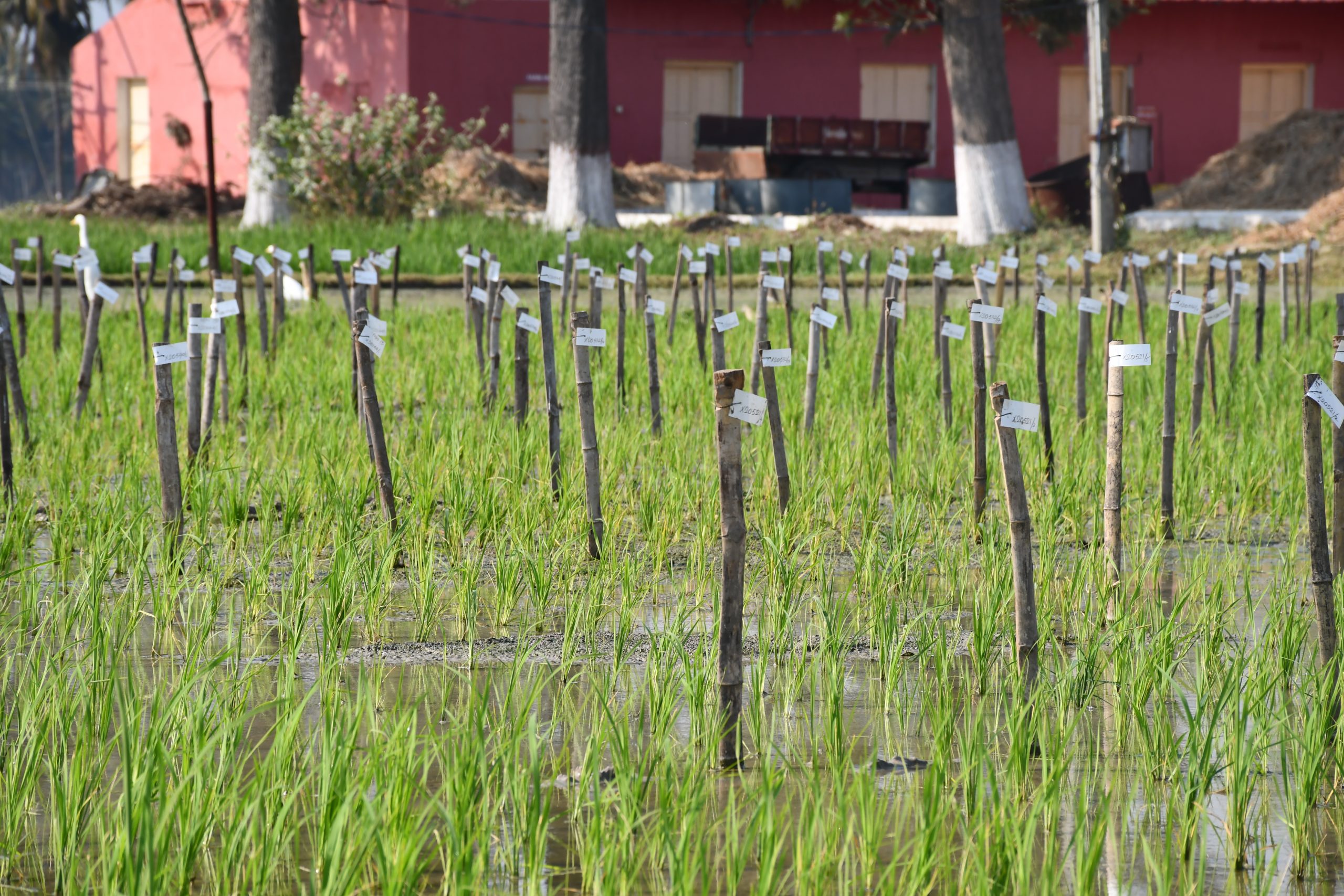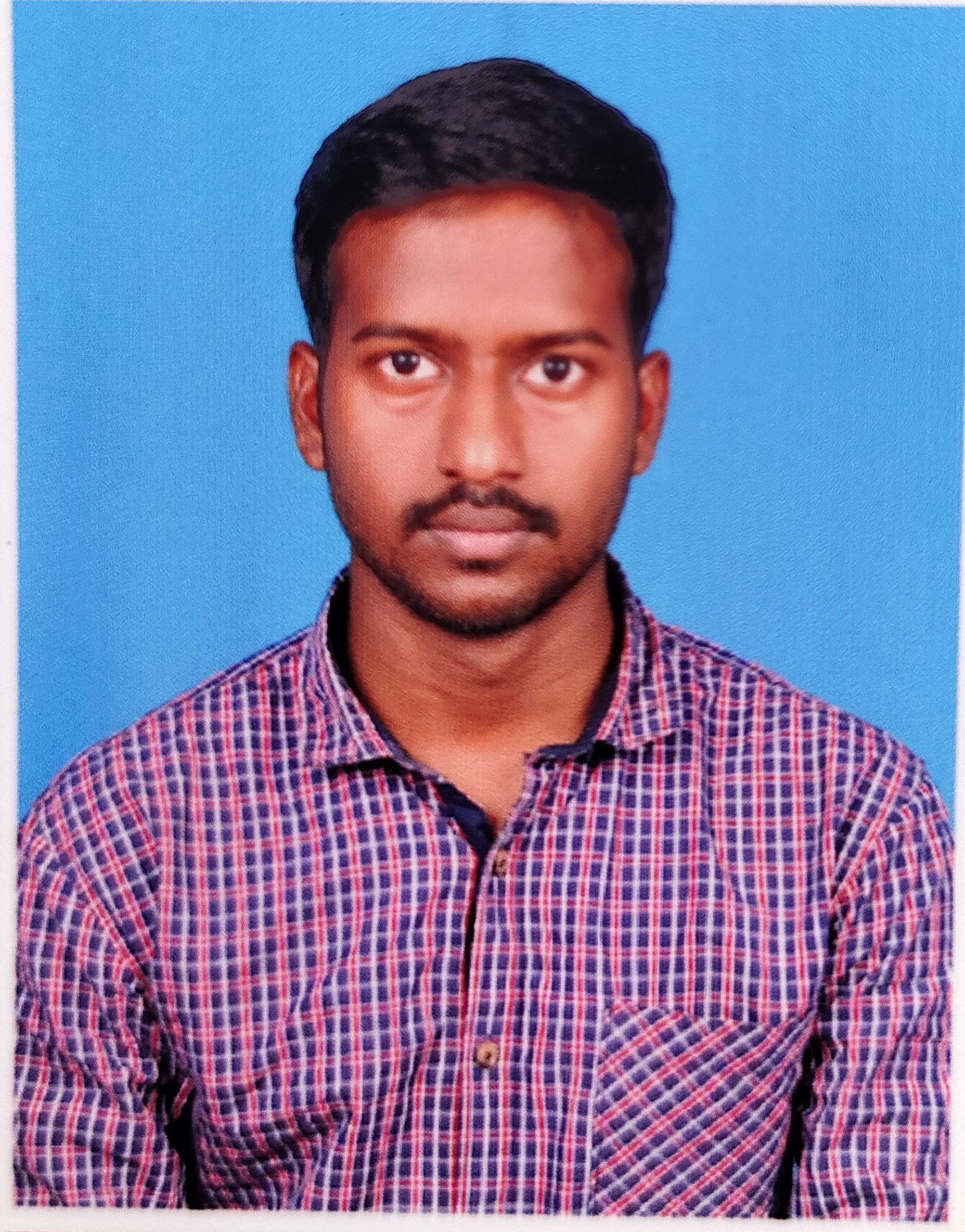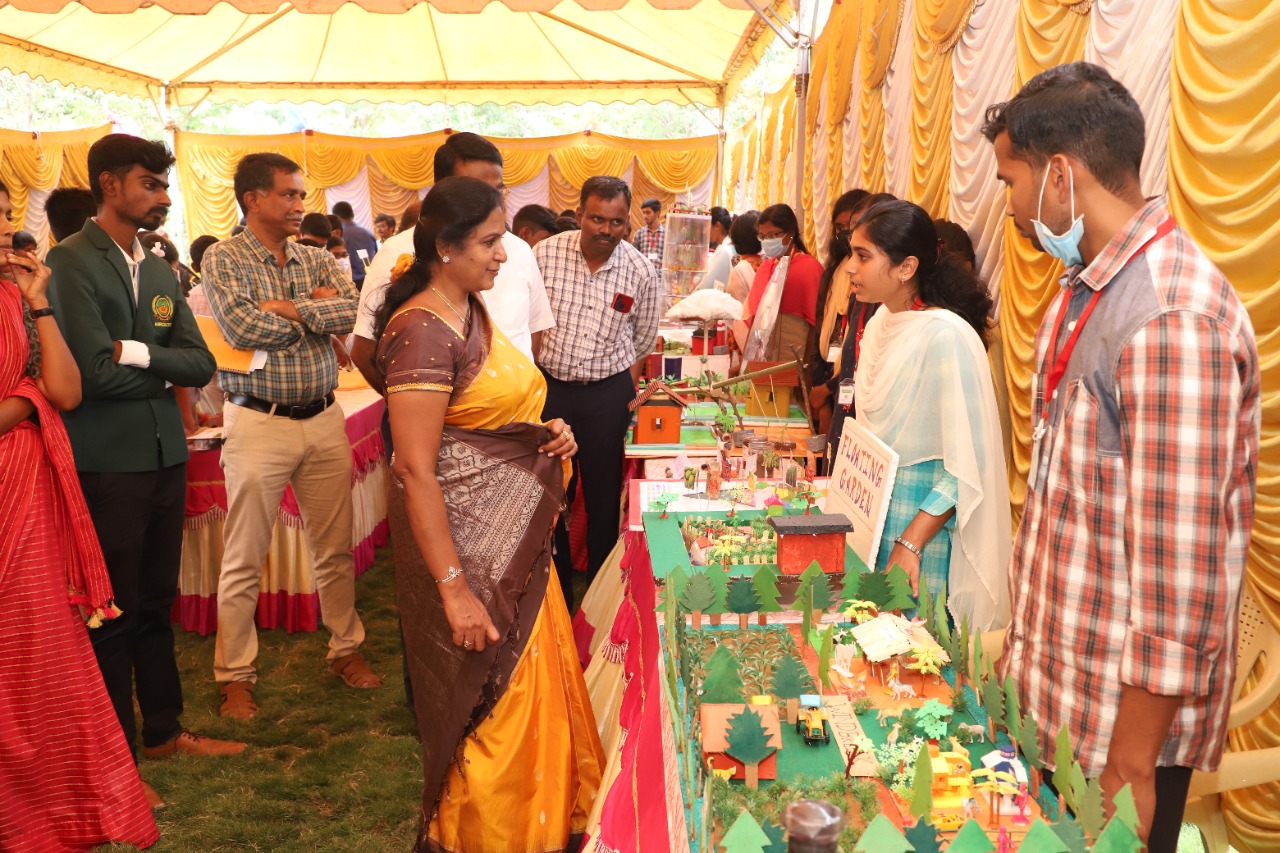The Tamil Nadu Agricultural University (TNAU) had its genesis from establishment of an Agricultural School at Saidapet, Madras, Tamil Nadu, as early as 1868 and it was later relocated at Coimbatore.
Get in touch
- info@tnau.ac.in
- 0422 6611200
- Monday to Friday: 9am to 5pm

Ph.D. in Genetics and Plant Breeding
Prelude
PhD in Genetics and Plant Breeding is a doctorate level program with 3-year duration in the domain of agricultural sciences with a specialization in Plant Breeding and Genetics. PhD in Genetics and Plant Breeding course aimed at providing in-depth skills and knowledge to the candidates about plant breeding and genetics so, the candidates can take on research activities with precision and confidence in the practical domain. PhD in Genetics and Plant Breeding course is career orienting in nature. Genetics and Plant Breeding a relatively new and rapidly growing field of contemporary biology. The art and science of modifying plant features to create desirable qualities and, as a result, increase the quality of nutrition in human and animal products are covered in the curriculum. Aspirants will largely learn technical techniques for improving varieties and genetic stocks, changing the genetic make-up of plants and developing novel breeding strategies to increase food, feed, and fibre production.
Why this programme?
- To orient the Post graduate students to experience the techniques involved in the development of new varieties besides underlying the genetic principles
- The primary aim of the course is to build on the understanding and skill base for the students by focusing on the research and practical aspects.
- The course curriculum aims at preparing the students for overall domain expertise, by conducting research, practice, and analysis, to help them to realize the demands of practical life.
Study Programme
The doctoral programme in Genetics and Plant Breeding has been designed following the ICAR guidelines. The course imparts:
- Students an enabling environment for better learning
- Students will get an in-depth understanding and will be required to write thesis on the research work carried out by them
- Develop globally competitive human capacity in Genetics and Plant Breeding
- Promote research on frontier areas for developing superior crop varieties
- Promote research on frontier areas for developing high performance and nutrient rich crop varieties
- The candidates pursuing a PhD Genetics and Plant Breeding course have a wide variety of opportunities available with them to choose from while planning about their career.
- Throughout the course, students acquire good knowledge and application skills of the subject in practical life and are thus suitable for dealing with multiple roles of various aspects at the industrial level.
More details on the list of courses and research work experience to be gained is listed here.
To replace table content
Sl.No. | Course No. | Course Title | Credit hours |
Major Courses | |||
1. | GPB 601 | Advances in Plant Breeding Systems | 3+0 |
2. | GPB 602 | Advances in Biometrical Genetics | 1+2 |
3. | GPB 603 | Molecular Cytogenetic for Crop Improvement | 2+0 |
4. | GPB 605 | Genomics in Plant Breeding | 3+0 |
5. | GPB 609 | IPR and Regulatory mechanism (e-course) | 1+0 |
Minor Courses | |||
6. | MBB 602 | Plant Genomic Engineering | 3+0 |
7. | PLP 603 | Molecular approaches for improving physiological mechanisms through trait introgression | 2+1 |
Supporting Course | |||
8. | STA 601 | Applied Regression Analysis | 2+1 |
9. | STA 602 | Multivariate analysis for applied sciences | 2+1 |
Colleges offering
The doctoral programme in Genetics and Plant Breeding is offered by Department of Genetics and Plant Breeding, CPBG in Coimbatore campus and students are placed at constituent colleges and research stations for research part of programme
Application and Admission
Interested in taking part in the programme of Genetics and Plant Breeding? Find out more about the specific Admission requirements and the application procedures. If you doubt whether admission is possible, feel welcome to apply online. The Admission Committee will check your admissibility.
Future Career
They can be recruited in Educational Institutes, Plant Breeding Centres, private seed firms, Genetic Engineering Firms, Nurseries, Agriculture Departments, Biotechnology Companies, Crop Plantation Facilities, Agriculture Ministries, Research Laboratories, Agricultural Scientist. Crop Research Directorates and other employers hire M.Sc in Genetics and Plant Breeding graduates. In SAUs and agriculture universities, they can obtain teaching and research opportunities.
Ph.D.’s in Genetics and Plant Breeding course
Doctoral Courses
After admission the students undergo a set of courses that help them understand the advanced areas of Genetics and Plant Breeding as per the Choice Based Credit System (CBCS) with a total credit load of 75 credits, of which 45 credits are exclusively earmarked for their Thesis Research.
Thesis research
After completing the courses in the first year, the students start their thesis research. Each student is assigned to an experienced faculty, approved by the Dean of School of Post-Graduate Studies, who would guide the student on his/ her choice of research topic for a minimum of two years period.
Research internship
The students are exposed to several scientific events like symposia and conferences. Many are encouraged to have internship training at other institutes for a couple of months, either in India or abroad.
Student Experiences

Myself Indhu S M, Ph.D., scholar from the Department of Genetics and Plant Breeding, TNAU. I joined PhD program during 2018 in a trimester batch. Program comprises course work for three trimesters and six trimesters for research work. During course work period I have undergone 7major courses, in which “Quantitative and Population Genetics” is a foremost important course which thought us to understand the genetic nature of traits in crop improvement and to make selection in crop improvement program. In the same course we were exposed to basic excel to R programming to analyse our experimental data. Another important course which forms the basis of plant breeding is“Crop evolution and management of PGR” where we learnt techniques from collection to storage of germplasm. We were lucky enough to have Ramaiah gene bank which facilitated storage of our pre breeding as well as breeding materials from our research work. In other courses we were taught about advanced techniques in plant selection, biotic and abiotic stress factors and its mechanisms and quality traits for improvement in each of the field crops. Among the 3-specialization courses, the most interesting course was “Harnessing pollination mechanism” where I was excited to know about different kinds of pollination mechanisms over a wide range of crops. Our classroom was well equipped and well ventilated to listen the classes. All of our course teachers were friendly and easily approachable to clarify the concepts. At the end of course work, we were evaluated through qualifying exam. The most enjoyed part of examination systems was my qualifying viva. Presentations and credit seminars were helpful in developing presentation skills and to break stage fear. My research work is on low phytate improvement in maize. Field has been allotted in Department of Millets. I am grateful to the department for facilitating labours for field works. Our labs are well equipped with nanodrop, advanced PCR, SNP genotyping platform, SPEC, NIR for genotyping and biochemical studies.I got experience to frame and execute a research work and publication of the same in peer reviewed journals with the guidance from my chairman and my advisory committee members. Hence in this four year of doctoral program, I gained skills on how to fix, plan and execute a research, data analysis, plant selection at molecular level and biochemical screening techniques in selecting plants for further improvement. In nutshell CPBG is a place where I equipped myself with skills, publications, experiences and confidence to continue my carrier in research.

I Studies my Ph.D. in GPB at CPBG, TNAU during 2019-2022. During the one year course work period, I gained knowledge in Advanced genomics, Plant Breeding, Biotechnology, Statistical analysis etc., both theoretical and practical. Especially the biometrical softwares viz., STAR, Plant Breeding tools, IRRISTAT, STRUCTURE, SAS of software learned during practical classed.
Incase of research work, the experiment conducted in Department of Rice. The excellent Agronomical practices from sowing to harvest followed and proper post harvesting process followed. The Rice quality lab, glasshouse facility, grain counter, deep freezing (– 80oC), Molecular lab are available in Rice Department which are I utilized, all the chemicals and equipments required for our research maintained and saturation level. I did next generation sequencing analysis in my research and the funding was provided from department of Rice for outsourcing.
I am trying for Post-doctoral opportunities available in foreign countries. The knowledge and publication made from the TNAU was very much useful. The knowledge gained during my Ph.D. helpful to apply ICAR-ARS examinations.

